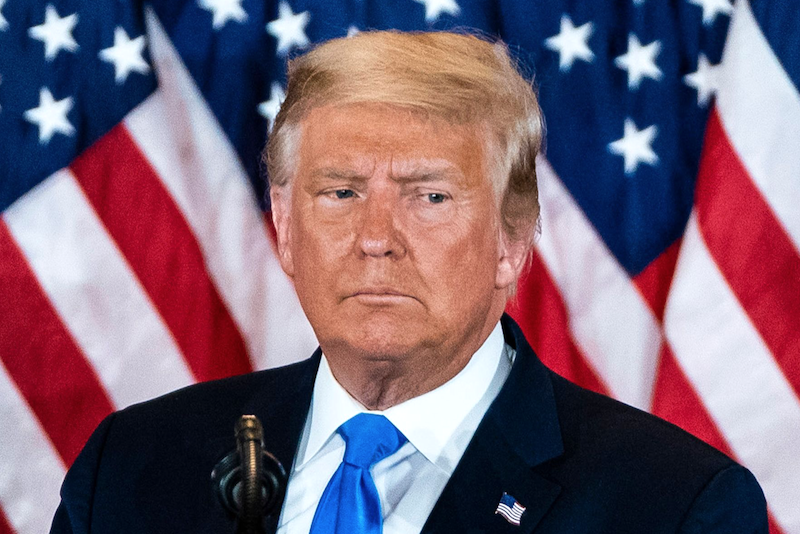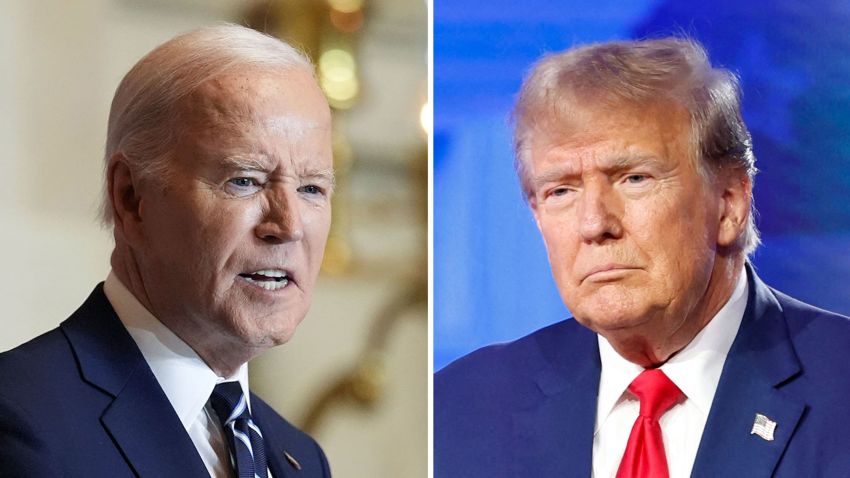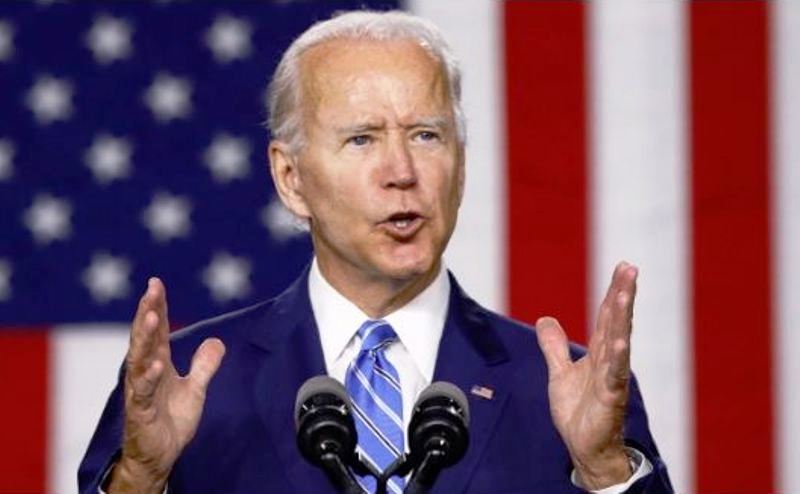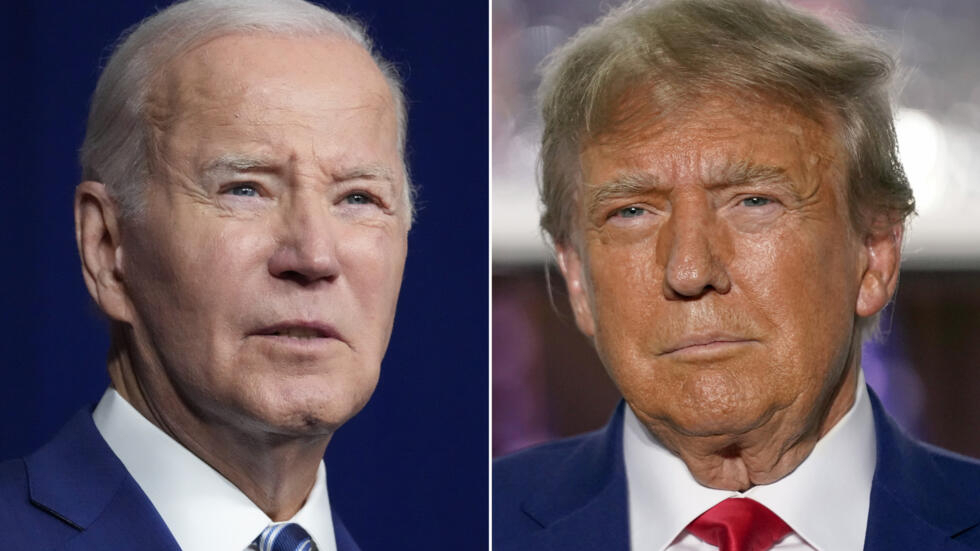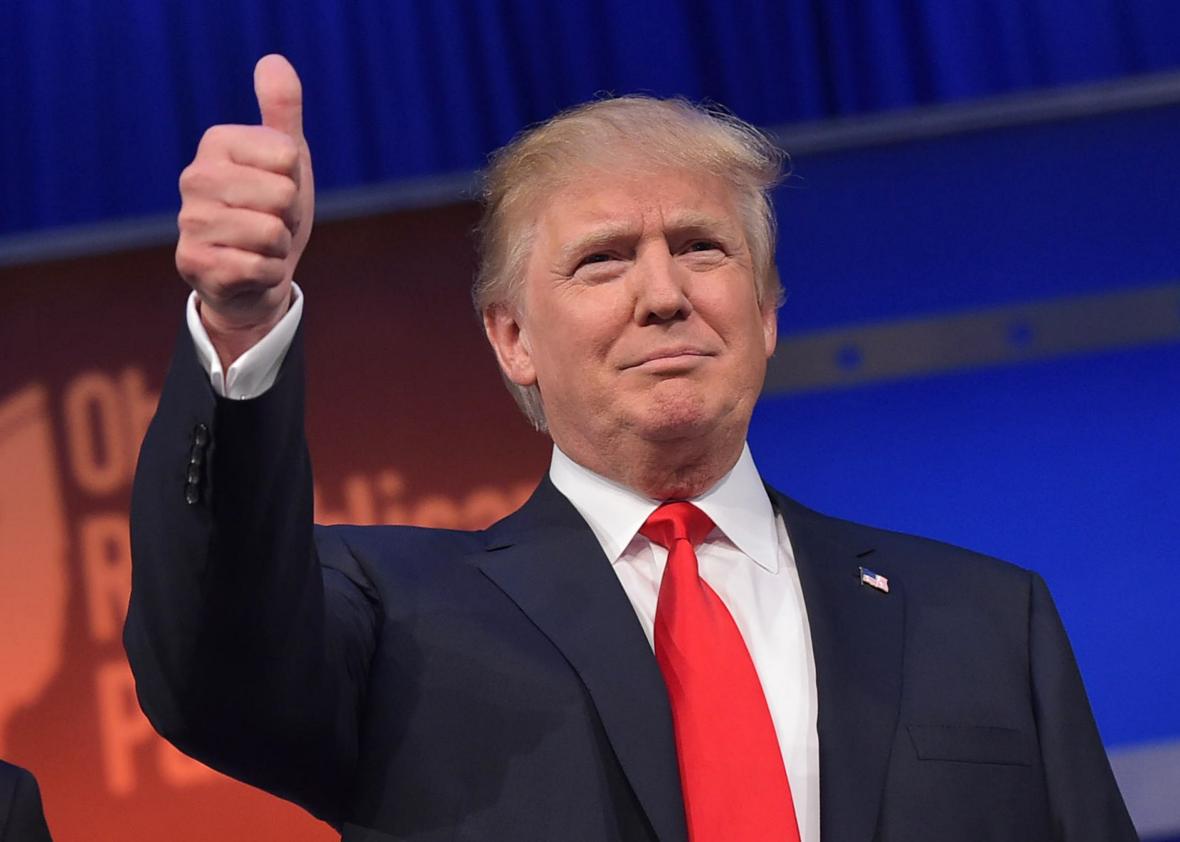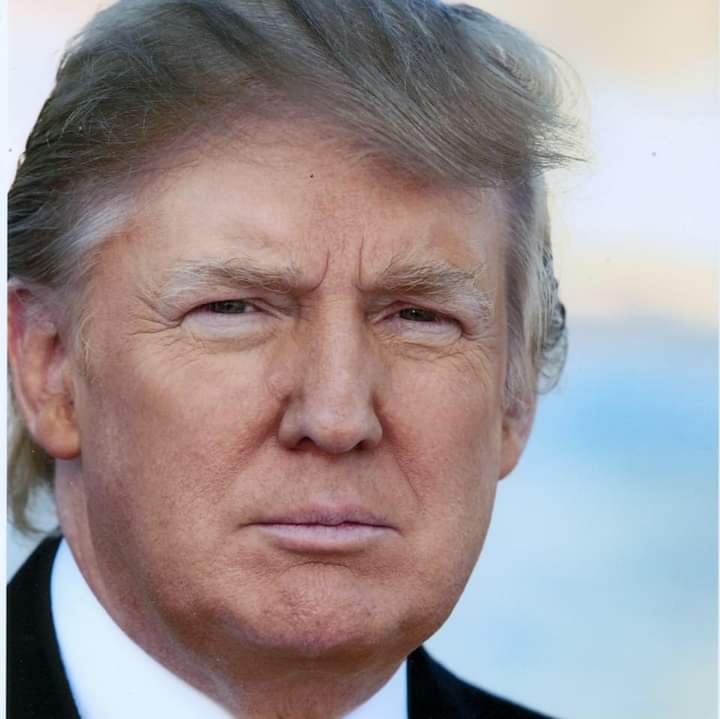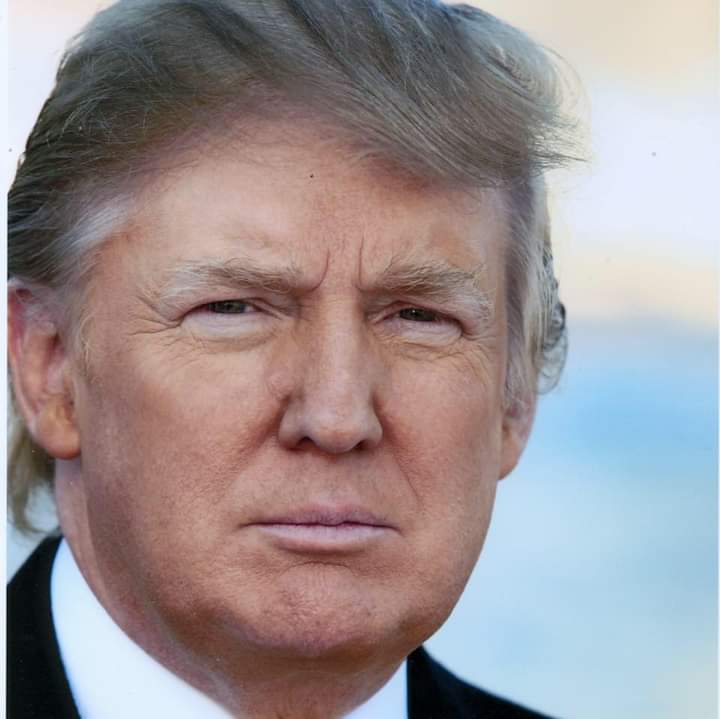The U.S. Supreme Court on Monday said states cannot bar former President Donald Trump from the ballot using a rarely invoked provision of the 14th Amendment.
The court overturned a decision from Colorado’s top court and handing the GOP presidential front-runner a victory in an unprecedented case that threatened to derail his bid to return to the White House.
In December, the Colorado Supreme Court determined that Trump was ineligible for the presidency due to his conduct surrounding the Jan. 6, 2021, attack on the U.S. Capitol.
The Colorado court’s divided decision rested on the Section 3 of the 14th Amendment, known as the insurrection clause, which bars oath-taking insurrectionists from holding public office.
In its opinion on Monday, the U.S. Supreme Court said only Congress can enforce the clause. The ruling resolves challenges to Trump’s eligibility for office pursued by voters in several other states and comes one day before Super Tuesday, when voters in 15 states will cast their ballots for the Republican presidential nomination.
“Responsibility for enforcing Section 3 against federal officeholders and candidates rests with Congress and not the states,” the court said in its 13-page unsigned opinion. “The judgment of the Colorado Supreme Court therefore cannot stand.”
Justices Amy Coney Barrett wrote separately to note that all nine justices agree on the outcome of the case, saying “that is the message Americans should take home.” The three liberal justices, Sonia Sotomayor, Elena Kagan and Ketanji Brown Jackson, issued an opinion concurring with the judgment, but said the court went too far in dictating “novel rules” for federal enforcement of Section 3.
Trump cheered the decision, saying in remarks from his South Florida resort, Mar-a-Lago, that is “very important” and “well crafted.”
“I think it will go a long way toward bringing our country together, which our country needs,” he said.
Noah Bookbinder, president of the group Citizens for Responsibility and Ethics in Washington President, which brought the challenge to Trump’s eligibility, said the decision allowing Trump back on the ballot rests on “technical legal grounds.”
“The Supreme Court had the opportunity in this case to exonerate Trump, and they chose not to do so. Every court — or decision-making body — that has substantively examined the issue has determined that January 6th was an insurrection and that Donald Trump incited it. That remains true today,” Bookbinder said. “The Supreme Court removed an enforcement mechanism, and in letting Trump back on the ballot, they failed to meet the moment. But it is now clear that Trump led the January 6th insurrection, and it will be up to the American people to ensure accountability.”
The Supreme Court’s decision
The opinion from the Supreme Court, which has a 6-3 conservative majority, was unanimous in reversing the Colorado Supreme Court’s decision. The high court did not address the Jan. 6 Capitol assault or Trump’s actions in the wake of the 2020 election.
“We conclude that States may disqualify persons holding or attempting to hold state office. But States have no power under the Constitution to enforce Section 3 with respect to federal offices, especially the Presidency,” the court said in its opinion.
It went on to say that “nothing in the Constitution delegates to the states any power to enforce Section 3 against federal officeholders and candidates.”
Reversal of the Colorado decision ensures that votes cast for Trump in the state’s Republican presidential primary will be counted, and his name will appear on ballots nationwide unless Congress itself acts, which is unlikely.
The justices acted with rare speed in deciding the case, issuing their opinion less than a month after hearing arguments Feb. 8.
The decision was expected, since most of the justices raised concerns during oral arguments about allowing a lone state to disqualify a presidential candidate and what would follow in future presidential contests. Still, the dispute raised a number of novel legal issues and marked the first time the Supreme Court weighed the application of Section 3 of the 14th Amendment.
It also brought the justices to the forefront of a presidential election — a position they have not been in since the high court ruled in Bush v. Gore in 2000. Justice Clarence Thomas is the only member who was on the court then and remains today.
The court recognized the consequences of allowing states to enforce Section 3, and the conflicting outcomes about the same candidate that might occur.
“An evolving electoral map could dramatically change the behavior of voters, parties, and states across the country, in different ways and at different times. The disruption would be all the more acute — and could nullify the votes of millions and change the election result — if Section 3 enforcement were attempted after the nation has voted,” the opinion said. “Nothing in the Constitution requires that we endure such chaos — arriving at any time or different times, up to and perhaps beyond the Inauguration.”
The concurring opinions
Though all nine of the justices agreed that Colorado cannot enforce Section 3, the court’s decision prompted division among the justices over the reasoning underlying that conclusion.
In a brief, one-page concurring opinion, Barrett said the challenge, which was brought under state law in state court, did not require the Supreme Court to address the “complicated question” of whether federal legislation is the sole vehicle through which Section 3 can be enforced. But she highlighted the agreement among the nine justices, particularly given the politically fraught nature of the case.
“The court has settled a politically charged issue in the volatile season of a presidential election. Particularly in this circumstance, writings on the court should turn the national temperature down, not up,” wrote Barrett, who was appointed by Trump. “For present purposes, our differences are far less important than our unanimity.”
Sotomayor, Kagan and Jackson, though, were at times highly critical of the five justices who fully signed onto the court’s opinion. The three liberal justices accused their conservative colleagues of departing from the principle of judicial restraint by effectively deciding not only the Colorado case, but future challenges to a candidate’s eligibility for office under Section 3.
By announcing that a disqualification for insurrection can happen only when Congress enacts a “particular kind of legislation” under another provision of the 14th Amendment, “the majority shuts the door on other potential means of federal enforcement,” they wrote in a joint opinion.
“They decide novel constitutional questions to insulate this court and [Trump] from future controversy,” Sotomayor, Kagan and Jackson wrote.
The trio of justices called aspects of the majority’s decision “gratuitous.” By resolving unsettled questions about federal enforcement of Section 3, they wrote, the court “attempts to insulate all alleged insurrectionists from future challenges to their holding federal office.”
The majority, the liberals said, “reaches out to decide Section 3 questions not before us, and to foreclose future efforts to disqualify a presidential candidate under that provision. In a sensitive case crying out for judicial restraint, it abandons that course.”
Challenges in other states
The Supreme Court’s ruling caps a period of uncertainty that followed the Colorado Supreme Court’s historic conclusion that Trump was ineligible for a second term under Section 3 and should be excluded from the state’s primary ballot.
The state court put its decision on hold to allow Trump to appeal to the Supreme Court, and ballots listing his name were printed and mailed to voters ahead of Colorado’s March 5 primary election. In response to the opinion from the nation’s highest court, Colorado Secretary of State Jena Griswold said in a statement that “Donald Trump is an eligible candidate on Colorado’s 2024 Presidential Primary.”
